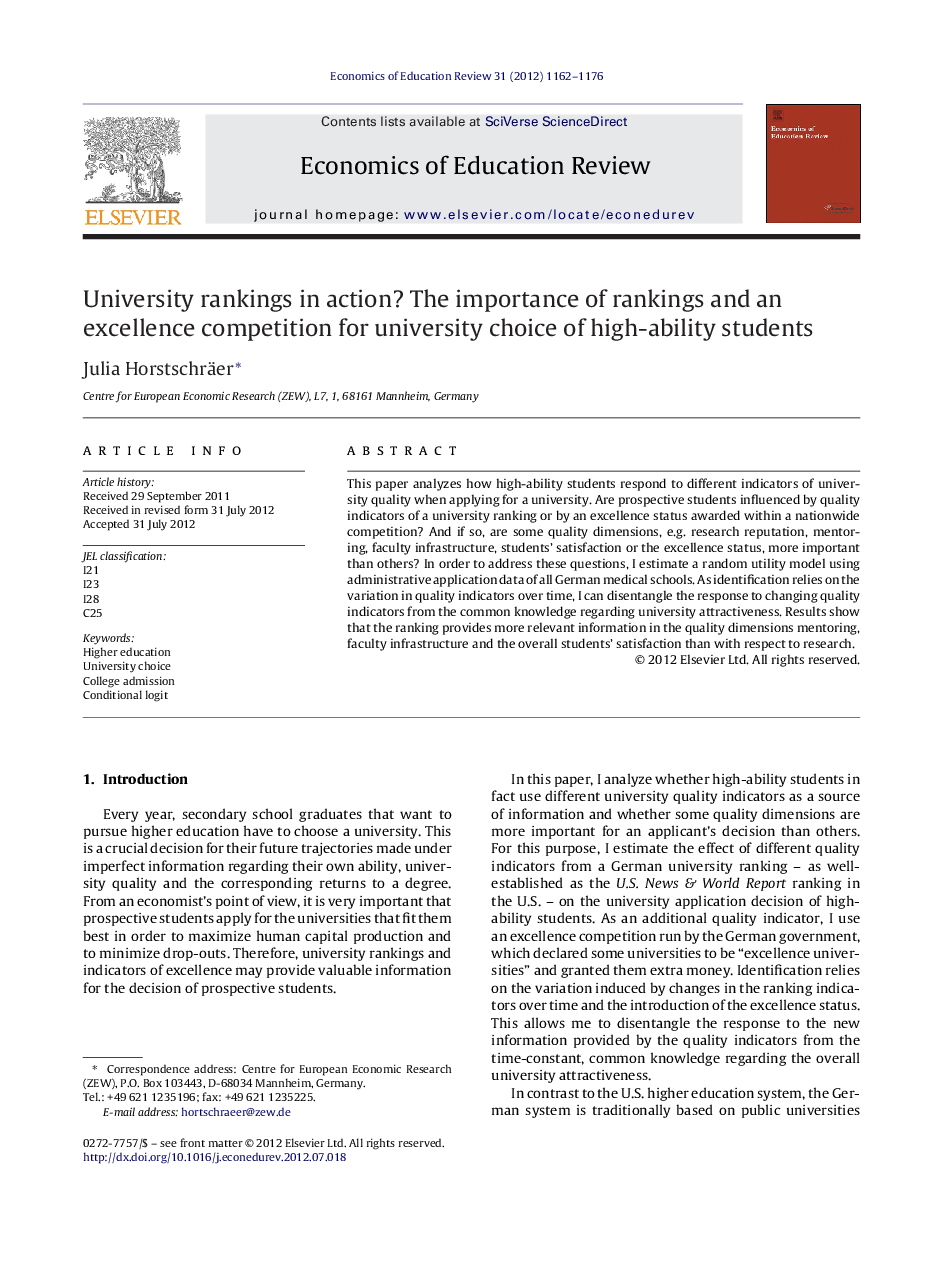| Article ID | Journal | Published Year | Pages | File Type |
|---|---|---|---|---|
| 354404 | Economics of Education Review | 2012 | 15 Pages |
This paper analyzes how high-ability students respond to different indicators of university quality when applying for a university. Are prospective students influenced by quality indicators of a university ranking or by an excellence status awarded within a nationwide competition? And if so, are some quality dimensions, e.g. research reputation, mentoring, faculty infrastructure, students’ satisfaction or the excellence status, more important than others? In order to address these questions, I estimate a random utility model using administrative application data of all German medical schools. As identification relies on the variation in quality indicators over time, I can disentangle the response to changing quality indicators from the common knowledge regarding university attractiveness. Results show that the ranking provides more relevant information in the quality dimensions mentoring, faculty infrastructure and the overall students’ satisfaction than with respect to research.
► Are prospective high-ability students influenced by quality indicators of a university ranking or by a government-run excellence competition? ► Are some quality dimensions, e.g. research, mentoring, infrastructure or students’ satisfaction more important than others? ► As identification relies on the variation over time, I can disentangle the response to changing indicators from general uni attractiveness. ► The results show that receiving excellence status increases the odds to apply for high-ability medical school applicants moderately. ► The ranking provides more relevant information in the dimensions mentoring, infrastructure and satisfaction than with respect to research.
